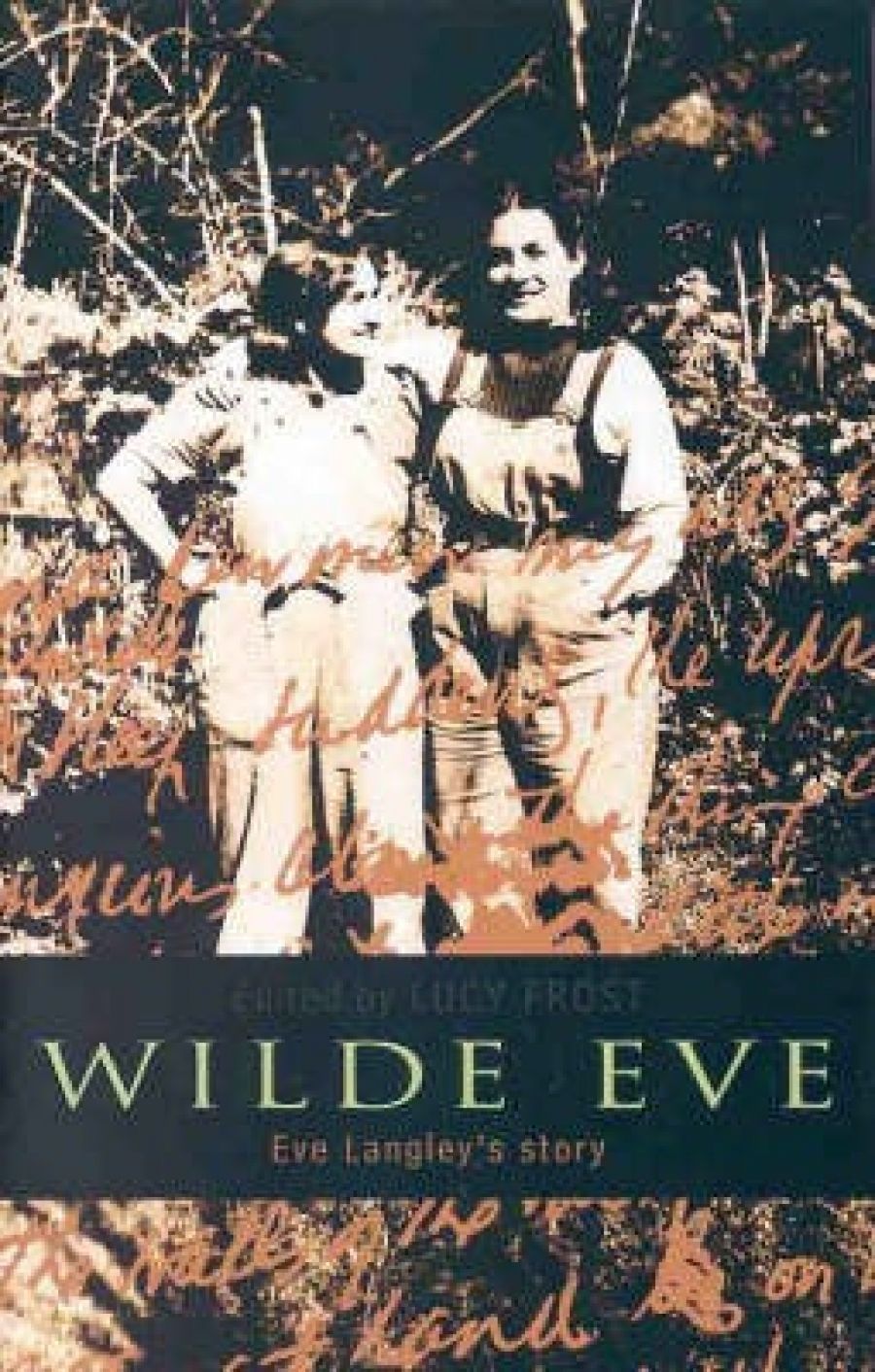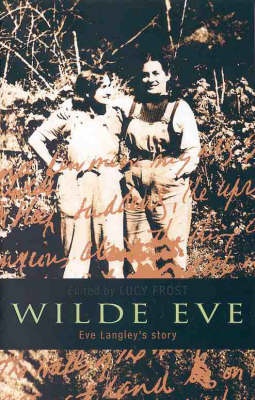
- Free Article: No
- Contents Category: Biography
- Review Article: Yes
- Article Title: Eve Langley Revisited
- Online Only: No
- Custom Highlight Text:
On a day which began with Eve finding her children ‘half naked and purple with cold … crying on their bed’, she was visited by a detective. He was there to ask questions because ‘La Gauss’, the old woman who let rooms to the family, had accused Eve’s husband of stealing. Langley let him know that she wrote everything down, including all of La Gauss’s lies, and that she would one day make a book of it. He is surprised that she could write of her life in these parts, and waves ‘his hand toward the ferns and gorse on the hill outside’. Eve replied, ‘The tragedy of life down here would amaze you. I have everything down sympathetically, and someday it shall be published.’
- Book 1 Title: Wilde Eve
- Book 1 Subtitle: Eve Langley’s Story
- Book 1 Biblio: Vintage, $18.95 pb, 322 pp
- Book 1 Cover Small (400 x 600):

- Book 1 Cover (800 x 1200):

Angus & Robertson didn’t continue to publish Langley because she could not bear for her work to be edited. The manuscripts were verbose, she indulged herself in fantasies of being famous dead men, she meandered, was difficult to deal with. What Frost does is transgress Langley’s own wishes and edits – what adverb to use? - brutally? artfully? – with the result that we have now a superb memoir by Langley of her life in New Zealand from 1932 to August 1941, a few months before she was committed to an asylum.
Tangibly loving her subject’s work, Frost has brought it to the ‘general’ reader in the only way possible. The two scholars read the same manuscript differently. What one quotes and the other leaves out results in two, in some ways polarized portraits. Thwaite used the fiction to interpret the life; her overarching question (as Frost puts it) was, ‘Why did this writer go mad?’ Reading her biography again, I realised why I had found it alienating a decade ago. Thwaite reiterates tirelessly Langley’s insatiability of mind, overshadowing the vitality that draws readers to Langley’s writing in the first place. Frost wants instead to ‘assiduously’ demonstrate that Langley maintained a ‘boundary line’ between her narratives and life. Even when she was transcribing [her diaries] verbatim, she integrated her material into a persona’s viewpoint marked as retrospective. Langley achieved this separation even while she experienced her ‘body as a text’.
Another way of reading the differences between these scholars is to see Thwaite’s as an effect of the interest feminism and women’s studies scholars took in madness and psychiatry in the 1980s; while Frost’s shows the effect of a broader 1990s shift towards cultural studies.
I wish that Frost had clearly said how she went about choosing what to keep and what to leave. Are all the major themes in the original manuscripts found pared down in Wilde Eve? How did she go about editing sentences and passages? About ninety percent of the material is still at the Mitchell. The question is prosaic, but important given the tensions between Thwaite and Frost.
Eve writes about her loves, her turbulent marriage to Hilary Clarke, the passions she feels for their children, and for Australia, her prolific poetry, novel and journal writing, the war, friends, loneliness, writing The Pea Pickers with two infants at her feet, the glory of winning the Prior prize. The tensions between mothering and writing, of maintaining her sense of identity are daily palpable: ‘But leaning against the sink, I face the audience of all lonely women. And in that audience there is not one unkind heart.’
Less is said about relations with her mother Mia and sister June, nor is there a great deal about her fantasies of being famous men, of being Jewish, of being god-like. (She comes to be shamefaced about her admiration for Hitler.) Never suburban, at times Langley is Dorothy Parker droll. Frost points out that Langley was writing like no other Australian at the time. About her adoration of the red-haired Dr Dudding she said, ‘To fall in love with my doctor was to my secret mind the very lowest and most suburban thing any woman could do.’ She is outwardly reflective only in the later years, but each ‘scene’ is internally organised, the dialogue to the point, the rush focused. Reading Langley is to be told that taking in air can be exhilarating. No wonder she frightened those she did not attract.


Comments powered by CComment